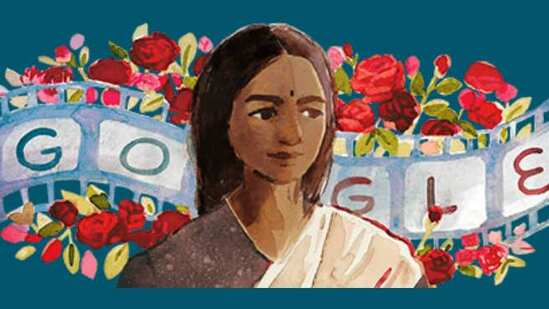On the occasion of PK Rosy’s 120th birthday, Google created a special doodle to honour her as the first female lead actor in Malayalam cinema.PK Rosy was born on February 10, 1903 in Thiruvananthapuram, Kerala, according to the information that can be found on a website on Google that is entirely dedicated to her.
The true identity of PK Rosy was revealed to be Rajamma. According to Google, during a time when performing arts were prohibited in many areas of society, especially for women, she broke barriers with her performance in the Malayalam movie Vigathakumaran (The Lost Child). In the movie, she played a role in which she lost her child.
According to IMDb, the audience at the Capitol Cinema in Thiruvananthapuram was upset that a Dalit woman had represented the character of a Nair woman in the film. The screening took place when the film was being shown.
Remembering PK Rosy, the first female lead to feature in Malayalam cinema, on her birth anniversary. #GoogleDoodle pic.twitter.com/EBXh1JosgP
— Google India (@GoogleIndia) February 10, 2023
It is said that she wed Kesava Pillai, a truck driver, and that after their marriage she relocated to Tamil Nadu, where she went by the name “Rajammal.”
Her contributions to Malayalam cinema and society in general were only brought to light several years after she retired from the performing profession. In her honour, the search engine remarked in a tribute to her, “Thank you, PK Rosy, for your courage and the legacy you leave behind.”
The Women in Cinema Collective (WCC) has announced that the year 2019 will see the establishment of a film society that will be known as PK Rosy. “Our company’s logo was made by Zoya Riyas, who is based in Mumbai, and it features a visual representation of Rosy.
The P.K. Rosy Film Society is an effort on our part to develop a viewing area for cinema, which has traditionally been an all-male space. This space will be open to both men and women.
Also Read:- ISRO Successfully Launched New Rocket SSLV-D2 From Sriharikota
Our mission is to showcase, discuss, and celebrate the work of female filmmakers, female film professionals, and feminist approaches to the aesthetics of cinema. Our panel is made up entirely of ciswomen and transwomen, and they head our organisation “according to their statement.




